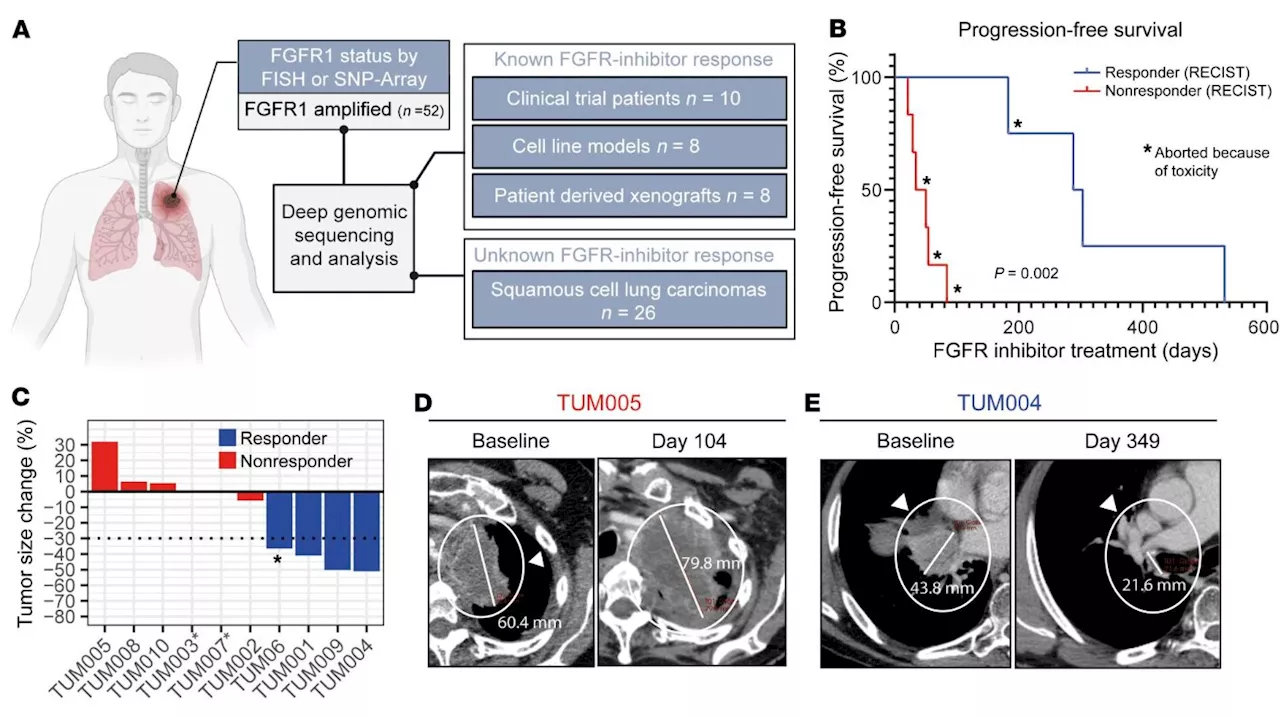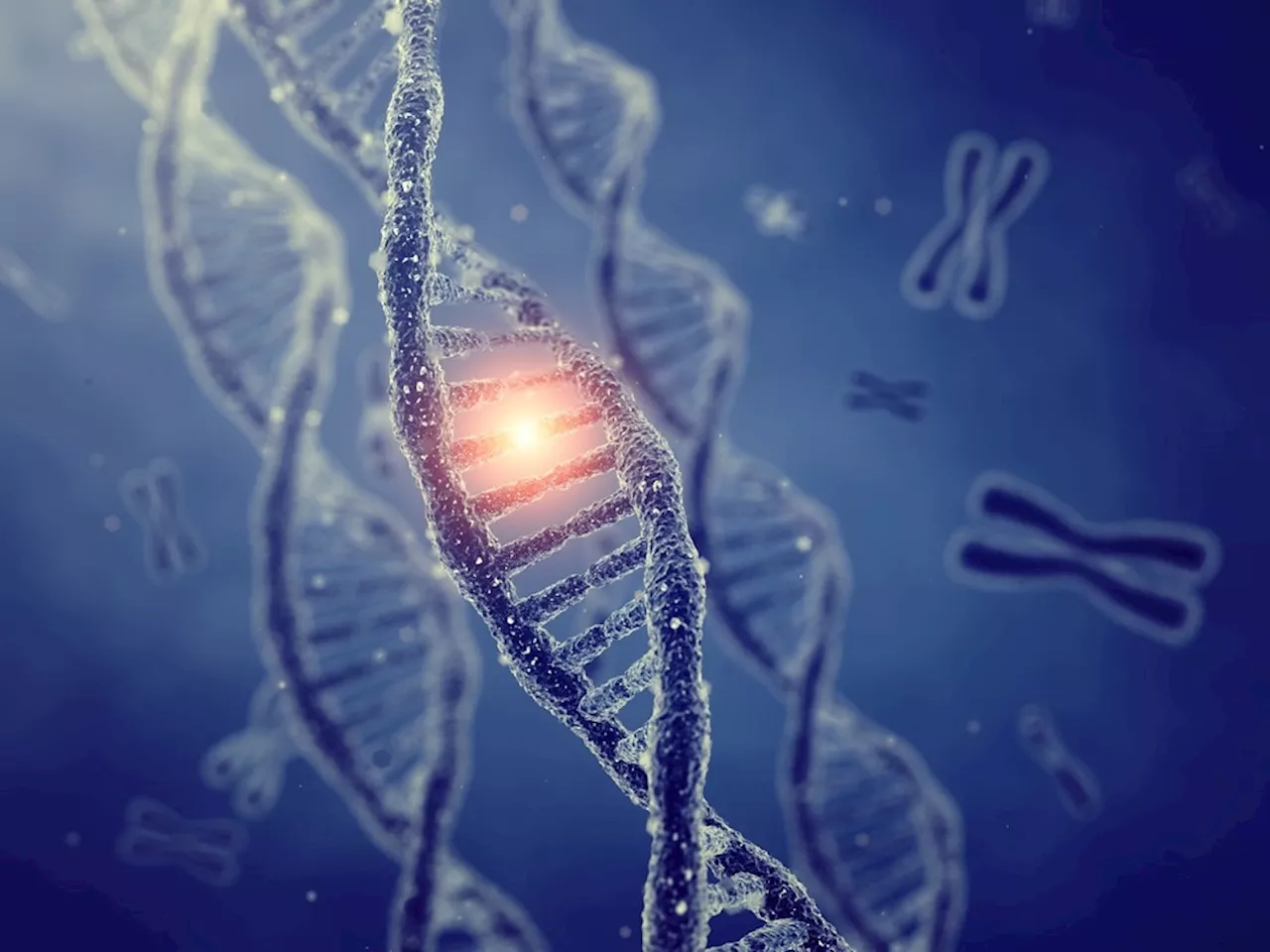Genetic information collected from seemingly healthy tissue near lung tumors may be a better predictor of whether cancer will come back after treatment than analysis of the tumors themselves, according to new research led by NYU Langone Health and its Perlmutter Cancer Center.
The new study focuses on lung adenocarcinoma, a cancer that forms in alveolar epithelial cells and accounts for about a third of all lung cancers in the United States, according to the U.S. Centers for Disease Control and Prevention. Most patients are cured if tumors are surgically removed early in the disease's progression, but residual cancer cells regrow in about 30% of cases and can lead to death.
For the study, the research team collected almost 300 tumor and healthy tissue samples from lung cancer patients. The study investigators then sequenced the RNA from each sample and fed these data, along with whether or not recurrence occurred within five years of surgery, into an artificial intelligence algorithm. This program used a technique called "machine learning" to build mathematical models that estimated recurrence risk.
Related Stories"Immunotherapy, which bolsters the body's immune defenses, might therefore help combat tumor growth before it becomes visible to traditional methods of detection," added study co-senior author and cancer biologist Aristotelis Tsirigos, PhD. Funding for the study was provided by National Institutes of Health grants R37CA244775 and U01CA214195. Further support was provided by the American Association for Cancer Research Grant and the Roche Access to Distinguished Scientists Programme.
United States Latest News, United States Headlines
Similar News:You can also read news stories similar to this one that we have collected from other news sources.
 Genetics of nearby healthy tissue may help catch lung cancer's returnGenetic information collected from seemingly healthy tissue near lung tumors may be a better predictor of whether cancer will come back after treatment than analysis of the tumors themselves, according to new research led by NYU Langone Health and its Perlmutter Cancer Center.
Genetics of nearby healthy tissue may help catch lung cancer's returnGenetic information collected from seemingly healthy tissue near lung tumors may be a better predictor of whether cancer will come back after treatment than analysis of the tumors themselves, according to new research led by NYU Langone Health and its Perlmutter Cancer Center.
Read more »
 Lung cancer researchers identify specific genetic change that predicts whether patients can respond to targeted therapySquamous cell lung cancer is a lung cancer subtype that is particularly difficult to treat. A new study now has revealed a novel genetic alteration that occurs in some cases in this type of tumor and that may expose a weakness of the tumor for therapeutic intervention.
Lung cancer researchers identify specific genetic change that predicts whether patients can respond to targeted therapySquamous cell lung cancer is a lung cancer subtype that is particularly difficult to treat. A new study now has revealed a novel genetic alteration that occurs in some cases in this type of tumor and that may expose a weakness of the tumor for therapeutic intervention.
Read more »
 Previous genetic association studies involving people with European ancestry may be inaccurateResearchers have found that previous studies analyzing the genomes of people with European ancestry may have reported inaccurate results by not fully accounting for population structure.
Previous genetic association studies involving people with European ancestry may be inaccurateResearchers have found that previous studies analyzing the genomes of people with European ancestry may have reported inaccurate results by not fully accounting for population structure.
Read more »
 Study finds genetic links between some health conditions and PTSDA new study led by Yale Department of Psychiatry researchers has identified numerous physical health conditions, particularly diseases of the cardiovascular and respiratory systems, that have genetic links to post-traumatic stress disorder (PTSD).
Study finds genetic links between some health conditions and PTSDA new study led by Yale Department of Psychiatry researchers has identified numerous physical health conditions, particularly diseases of the cardiovascular and respiratory systems, that have genetic links to post-traumatic stress disorder (PTSD).
Read more »
 AI-Powered Genomic Analysis: Revolutionizing the Detection of Genetic MutationsBy leveraging AI capabilities, scientists can rapidly and accurately analyze vast amounts of data. This innovative technology facilitates the detection of mutations, leading to personalized medicine and targeted treatments.
AI-Powered Genomic Analysis: Revolutionizing the Detection of Genetic MutationsBy leveraging AI capabilities, scientists can rapidly and accurately analyze vast amounts of data. This innovative technology facilitates the detection of mutations, leading to personalized medicine and targeted treatments.
Read more »
 Judge Gene: Settling fantasy football disputes on commissioner vetoes, trading Travis Kelce and moreIs it okay to bench a MNF player if you have a league? And what should we do about vetoes? Judge Gene rules in his debut column!
Judge Gene: Settling fantasy football disputes on commissioner vetoes, trading Travis Kelce and moreIs it okay to bench a MNF player if you have a league? And what should we do about vetoes? Judge Gene rules in his debut column!
Read more »
